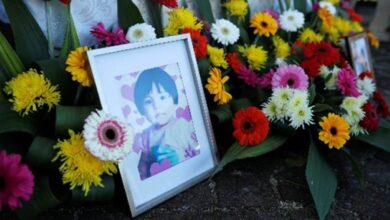The president of El Salvador is one of the most popular leaders in the world, but also one of the most criticized by the international community .

His great popularity and performance in his government in El Salvador is directly proportional to his authoritarian decisions that create concern outside the country. Photo: Presidency El Salvador
LatinAmerican Post | Santiago Goméz Hernández
Listen to this article
Leer en español: 3 claves para entender la infamia de Nayib Bukele
Salvadoran President Nayib Bukele worries several international analysts. His great popularity and performance in his government in El Salvador is directly proportional to his authoritarian decisions that create concern outside the country.
Also read: How will the absence of opposition influence Nayib Bukele's politics?
Since the president entered Congress with the Military Forces in 2020 to press for approval of the military budget; Bukele's name creates worry in international organizations. But, how do these authoritarian signals and the great popularity of the president coexist?
Control of the 3 branches of power
The most recent news is the dismissal of the judges. Over the weekend, the new congress dominated by pro-government groups removed the magistrates of the Supreme Court of Justice and the Attorney General. Bukelismo insists that these decisions are in search of justice free of corruption, in a country in which impunity and waste of public resources have exhausted salvadorians.
No @nayibbukele, para mí todos los ciudadanos son iguales.
Parece usted el experto en señalar a otros y cubrir a los suyos, aunque atropellen la Ley.
No hay que ser tan obvio.
Pero le explico… https://t.co/i4UugASiil
— Raúl Melara (@MelaraRaul) October 2, 2020
However, this attack on the independence of powers reinforces international concerns about Bukele. The Constitutional Chamber of the CSJ declared that "the decision of the Legislative Assembly (…) is unconstitutional, as it violates the republican, democratic and representative form of government."
No @nayibbukele, para mí todos los ciudadanos son iguales.
Parece usted el experto en señalar a otros y cubrir a los suyos, aunque atropellen la Ley.
No hay que ser tan obvio.
Pero le explico… https://t.co/i4UugASiil
— Raúl Melara (@MelaraRaul) October 2, 2020
However, several of the dismissed magistrates and Prosecutor Raúl Menara himself presented their resignation letters, giving free rein to the new officials related to the president.
The US government itself called its Salvadoran counterpart to express its concern over this decision. However, Bukele said that "with all due respect: we are cleaning our house … and that is none of your business."
Now with the presidency, the majority in Congress and the control of the judiciary, there do not seem to be enough counterweights in the country to be able to maintain an independence of powers. This means that Salvadoran democracy is at the mercy of what Bukele and his party decide. This obviously does not concern his millions of followers, who see in the millennial president a way of doing fresh politics, with an anti-establishment discourse and, most importantly, with results.
Bukele's results
Nayib Bukele's popularity isn't just for his speech and his self-confidence. His presidency has been accompanied by several achievements. According to official figures , in January 2021, there were 177 fewer homicides than the same month in 2019, when Bukele had not assumed the presidency.
These achievements have made him one of the most popular presidents, not only in Latin America but in the world. A Gallup poll at the end of 2020 showed that the millennial leader maintains 90% approval among his electorate. His popularity has endured the COVID pandemic, a notorious image killer for politicians.
For example, Bukele managed to build one of the largest hospitals on the continent in record time to cope with the pandemic. However, several media reported that the new Hospital was not ready to attend the emergency when its inauguration was announced, since, despite having ICU beds, they did not have the necessary equipment (ventilators) or enough specialized medical personnel. Of the 2000 beds that were promised for the Covid crisis, so far, it has only been able to contribute 400 in its first construction phase, and it will not be until phase 3 that the promised capacity is fulfilled.
Even the Central American country has already begun vaccination for its inhabitants over 50 years of age, which shows that the Salvadoran vaccination program is advancing faster than many other countries in the region.
However, despite the president's achievements, the latest democracies that have fallen in Latin America have done so in the same way: with a popular president. The same happened with Alberto Fujimori in Peru and with Hugo Chávez in Venezuela. The risk now is not that Bukele will continue to do well, but that when the Salvadoran people decide to vote for another alternative, it will be much more difficult to get Bukeelism out of the state.
Human Rights Violations
Apart from the great questions about the grab of power in the hands of Bukele, there are several criticisms of NGOs for possible violation of human rights. Especially, to his security policies and possible violations of Human Rights in prisons by the State and the use of images of prisoners crowded together for political propaganda. This, in a country with the second rate of prisoners per capita in the world, after the United States.
Amnesty International denounces that during the pandemic, the militarization of El Savador and the use of force to keep people in their homes and reduce coronavirus infections, resulted in excessive use of force denounced by the NGO. For example, a young man was shot twice in the legs by a policeman, when he left his house to buy some things.




